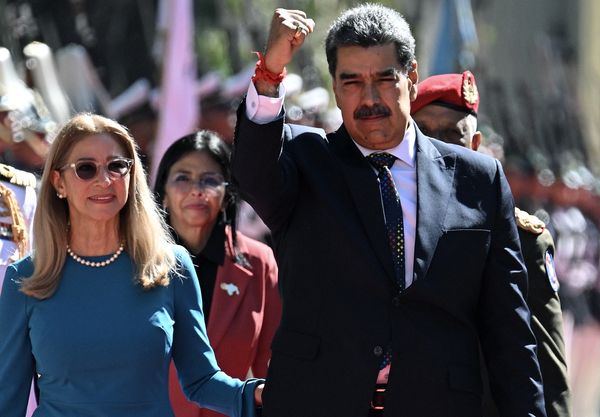
After the dreadful earthquakes in Syria and Turkey – the latter of which is now grappling with two more powerful shocks – the global humanitarian ecosystem seems to have once again failed to serve its purpose.
Under domestic pressures and international politics, there is a stark disparity in the way international rescue, relief and rehabilitation aid has been delivered to thousands of Syrians in comparison with their peers deserving equal care and attention in Turkey.
Timing and reach free from barriers are the key to a humanitarian response in a disaster. I learned this from some of the dedicated individuals at the Victorian Emergency Management Institute while mocking a rapid response exercise in an imaginary country.
I am a former war correspondent in Afghanistan and the week-long essentials of humanitarian practice course in Melbourne helped me explore the history of many of our household names in this sector, how they are coping or failing to cope with the ever-changing dynamics of international politics.
The setup designed for the training was imaginary, but what we are witnessing in places like Syria and Afghanistan is not a mock exercise of calamities of the worst forms but a toxic cocktail of egoistic human policies overlapping with natural disasters. For this, our global humanitarian ecosystem has no solutions, it seems.
The latest twin earthquakes of 6.4 and 5.8 magnitude in Turkey is just another reminder of the power of nature beyond state boundaries, and that a humanitarian response must be without limitation.
Generally speaking, the Syrian regime is at odds with much of the rest of the world – and of course with so many of its own citizens. It is one of the main hurdles stopping aid convoys and volunteers from reaching the needy, according to reports from the Syrian opposition-run rescue group, the White Helmets.
The Assad regime has only given the UN access to two border crossing entry points from Turkey for the thousands of earthquake victims, when much of the critical time to save lives has already been lost. We can add this to the list of atrocities committed by the regime in Damascus.
Does that mean we take this experience as a point of no hope and give up on critical humanitarian responses that are above and beyond all political boundaries? Definitely not.
The first Geneva convention of 1864 laid the foundations for many of the rules governing the mandate of humanitarian actors. Since then we have seen an array of large institutions emerge, such as the UN, the International Committee of the Red Cross and many more. Our complex world today needs more robust and binding laws globally to be effective in stopping the conflicts in the first place and ensure a universal authority and access for humanitarians to the needy wherever, whenever.
Afghanistan is another dreadful example of humanitarian support left to the mercy of a brutal regime after the west abandoned the country to the Taliban, neglecting the needs of the country and its people. Now the sanctions imposed on Kabul, particularly its banking sector, make delivery of crucial aid for the war-ravaged country nearly impossible.
The World Health Organization suggests one-third of the population in Afghanistan, about 28.3 million people, will need urgent humanitarian assistance in 2023, a 16% increase from the 24.3 million people needing assistance in 2022.
When the Taliban came up with their “gender-apartheid” idea of not letting women and girls work in non-government organisations, there was some backlash from the humanitarian world but certainly not enough.
The blanket ban on a number of international non-government organisations in Pakistan following the killing of al-Qaida leader Osama bin Laden is another example of humanitarian assistance falling prey to politics.
All this makes headlines but so far hasn’t led to a more efficient and humanitarian system where no individual, group or country can hinder the delivery of lifesaving support in any corner of the world.
UN agencies as well as the International Federation of Red Cross and Red Crescent Societies with its 192-member national societies comprises a wonderful global institutional network ready to come for the rescue of humanity when local governments somehow fully or partially fail. Still, the potential of these bodies is used mainly because of the contesting political influences that undermine the actual immunity for the humanitarian workers on the ground.
These groups need to have enough resources and power to replace persistent appeals for aid with a more sustainable method.
Whenever there is tragedy – like the current one in Syria and Turkey – we feel the senseless curbs on humanitarian activities and then forget. We need to make the idea of free humanitarianism a truly respected global agenda, just like climate change, press freedom and gender equality. In order to achieve this, we must do some soul-searching and find a way to end all barriers for aid in future.
Otherwise what is happening now will happen again.
• Shadi Khan Saif is an Afghan journalist based in Melbourne
• This article was amended on 23 February 2023 to clarify that the ban on women working in non-government organisations in Afghanistan does not include UN agencies







